
The radial engine is a reciprocating type internal combustion engine configuration in which the cylinders "radiate" outward from a central crankcase like the spokes of a wheel. It resembles a stylized star when viewed from the front, and is called a "star engine" in some other languages.
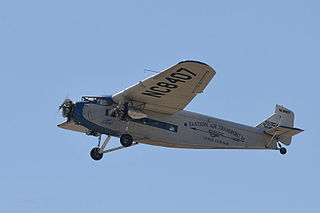
The Ford Trimotor is an American three-engined transport aircraft. Production started in 1925 by the companies of Henry Ford and ended on June 7, 1933, after 199 had been made. It was designed for the civil aviation market, but also saw service with military units.

The Douglas XB-19 was a four-engined, piston-driven heavy bomber produced by the Douglas Aircraft Company for the United States Army Air Forces (USAAF) during the early 1940s. The design was originally given the designation XBLR-2. It was the largest bomber built for the USAAF until 1946, with the Convair B-36 surpassing it in size.

The Monocoupe 90 was a two-seat, light cabin airplane built by Donald A. Luscombe for Monocoupe Aircraft. The first Monocoupe was built in an abandoned church in Davenport, Iowa, and first flew on April 1, 1927. Various models were in production until the late 1940s.

The Ryan STs are a series of two seat, low-wing monoplane aircraft built in the United States by the Ryan Aeronautical Company. They were used as sport aircraft, as well as trainers by flying schools and the militaries of several countries.

The Warner Scarab is an American seven-cylinder radial aircraft engine, that was manufactured by the Warner Aircraft Corporation of Detroit, Michigan in 1928 through to the early 1940s. In military service the engine was designated R-420.
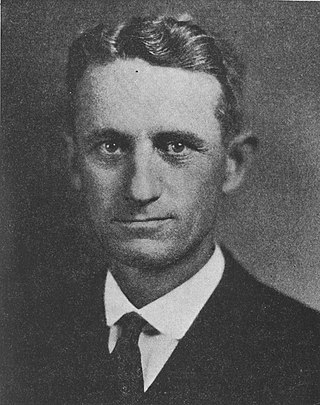
Winfield Bertrum "Bert" Kinner was an American aircraft engine designer and designer of the first folding wing aircraft. Kinner founded Kinner Airplane & Motor Corporation in Glendale, California, which produced radial engines and aircraft.

The Waco Aircraft Company (WACO) was an aircraft manufacturer located in Troy, Ohio, United States. Between 1920 and 1947, the company produced a wide range of civilian biplanes.
The Kinner Sportster was a 1930s American light monoplane built by Kinner Airplane & Motor Corporation.

The Kinner Sportwing was a 1930s American light monoplane built by Kinner Airplane & Motor Corporation.

The Kinner R Playboy was a 1930s American two-seat sporting monoplane built by Kinner Airplane & Motor Corporation.

The Kinner K-5 was a popular engine for light general and sport aircraft developed by Winfield B. 'Bert' Kinner. With the boom in civilian aviation after Charles Lindbergh's transatlantic flight the K-5 sold well. The K-5 was a rough running but reliable engine and the K-5 and its derivatives were produced in the thousands, powering many World War II trainer aircraft. The K-5 was followed by the B-5, R-5 and R-55. Military engines were designated R-370

The Kinner B-5 was a popular five cylinder American radial engine for light general and sport aircraft of the 1930s.

The Harlow PJC-2 is a 1930s American four-seat cabin monoplane, designed by Max Harlow.
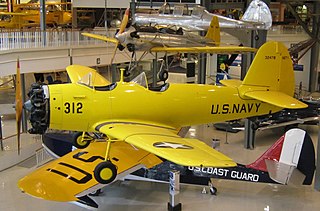
The Timm N2T Tutor is an American training monoplane built by the Timm Aircraft Corporation for the United States Navy as the N2T-1.

The Savoia-Marchetti S.56 was an Italian single-engine biplane flying boat trainer and tourer, built by Savoia-Marchetti.

The Kellett K-2 is a two-seat autogyro developed in the United States in the early 1930s. Later examples were designated K-3 and K-4 when equipped with more powerful engines. K-3 NC 12691 is seen in the 1934 movie, It Happened One Night.
The Security Airster S-1 is an American two-seat single-engined monoplane designed by Bert Kinner and built by his Security National Aircraft Corporation later named the American Aircraft Corporation.
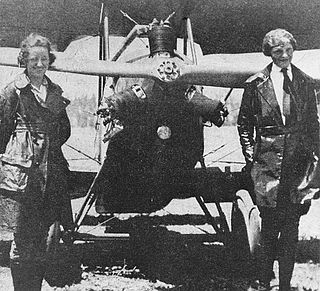
The Kinner Airster is an American two-seat single-engined biplane designed by Bert Kinner and built by his Kinner Airplane & Motor Corporation.
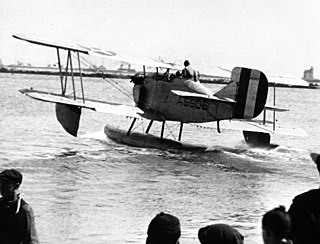
G Elias & Brother was an American manufacturer of cabinets and aircraft based in Buffalo, New York in the 1920s. A.G. Elias sat on the Manufacturers Aircraft Association's board of directors along with President Frank H. Russell, VP Glenn L. Martin, Charles L. Laurence, Chance M. Vought, S.S. Bradley, George P. Tidmarsh, and Donald Douglas. E.J Elias promoted the construction of a Buffalo municipal airport to aid the local fledgling airplane industry of five aviation companies constructing airplanes and airplane parts. From 1920 to 1925, Elias company's chief engineer, David Earle Dunlap (1896-1957), designed the Elias EM-2 Expeditionary planes. He designed the NBS-3 bomber fuselage and the Elias M-1 Mail plane. Dunlap's Elias TA-1 design was the first United States Army Air Corps Trainer to have a radial engine. After tests a McCook Field, the Army Air Corps selected other manufacturers over the Elias bomber and trainer. The company designed the Elias EM-1 to meet requirements for a multirole amphibian marine expeditionary aircraft. Elias delivered six production Elias EM-2 aircraft with Liberty engines to the United States Navy in 1922.



















